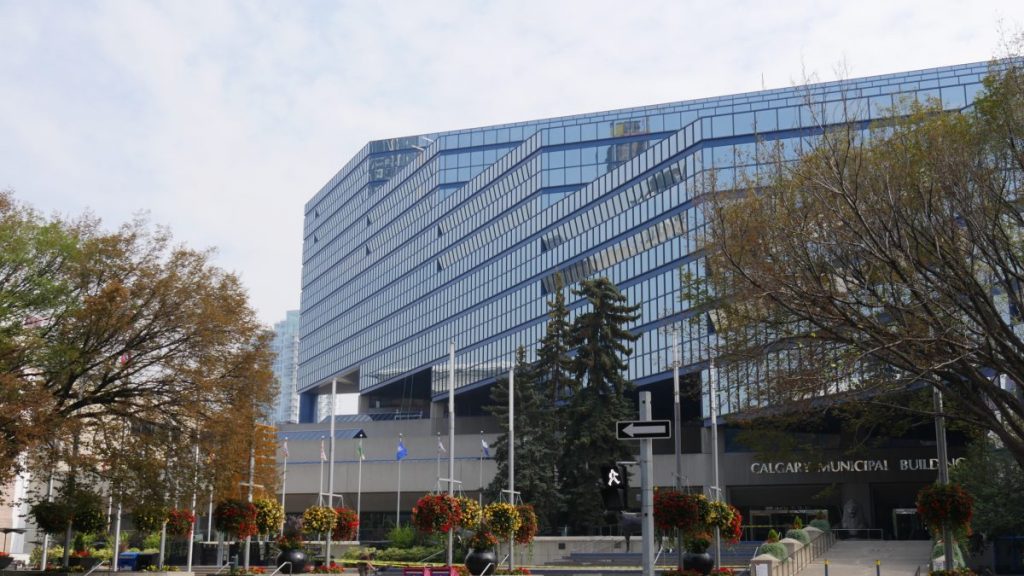Calgary task force set up to tackle homelessness and addiction

Posted Dec 16, 2022 1:45 pm.
Last Updated Dec 16, 2022 2:01 pm.
The Alberta government set up a collaborative task force for Calgary on Friday to address social issues like addiction and homelessness in the city.
The Calgary Public Safety and Community Response Task Force is a 14-member collaboration with City of Calgary councillors, Calgary police, the Calgary fire department, First Nations, and provincial ministers.
As part of a $187-million commitment to address addiction and homelessness, the province is putting nearly $58 million toward “addressing addiction and homelessness in Alberta’s largest city.”
“We are taking a fair, firm, and compassionate approach to addressing addiction, homelessness, and public safety issues in Calgary,” Minister of Mental Health and Addiction Nicholas Milliken said in a statement. “By bringing community partners together, we will be able to implement a series of recovery-oriented initiatives that will support Calgarians struggling with these complex social issues.”
The task force includes four UCP ministers, Rebecca Shulz, Jeremy Nixon, Mike Ellis, and Milliken.
Jodi Two Guns, the executive director of social development for Tsuu’Tina Nation and Councillor Asinaipoka Reuben Breaker with Siksika Nation join the ministers.
Calgary councillors Sonya Sharp and Andre Chabot, along with city manager David Duckworth, Calgary fire chief Steve Dongworth, and Calgary police chief Mark Neufeld make up Calgary’s representation.
Kerry Bales, senior program officer of Provincial Addiction and Mental Health at Alberta Health Services (AHS), Tony Pasich, associate executive director of EMS Operations for AHS South Zone, and Patricia Jones from the Calgary Homeless Foundation round out the pack.
Related Stories:
-
Alberta pledges combined $187M in addictions, homelessness funding
-
Former Calgary office space converted into affordable housing
-
Response triggered for city’s vulnerable as Calgary endures cold snap
The province says the task force plans to increase addiction treatment capacity, provide addiction and mental health treatment programs in correctional centres, create a hybrid health and police hub, expand medical detox services, build harm reduction and recovery outreach teams, expand access to emergency shelter space, and improve access to affordable housing options that support recovery.
The force is to meet Friday for the first time.
Calgary Mayor Jyoti Gondek said in a statement she is happy to see provincial support for a city-made crisis model.
“Earlier this year, the City of Calgary convened a group of service providers, outreach agencies, downtown businesses, post-secondary institutions, enforcement agencies and other stakeholders to create a collaborative process for assisting Calgarians in positions of vulnerability,” Gondek said. “We developed a multi-agency crisis response model that was designed to care for individuals and their communities.”
“I am pleased to see the establishment of a local task force to determine the most effective and meaningful approaches to creating a coordinated delivery model around housing, mental health and addictions support that is much needed in Calgary.”
However, the Alberta NDP doesn’t see it that way and thinks the task force is another report that steers away from “solving the serious issues that face Calgarians.”
“Calgarians don’t need yet another report. We need action,” said NDP Municipal Affairs Critic Joe Ceci in a statement.
“The UCP has already looked at the issue of mental health and addictions and housing in Calgary through their downtown working group. The report was released seven months ago with no action and no indication of what recommendations they plan to implement — if any. Now the UCP is once again looking at the same issues. This is an admission that they have no plan.”
Alberta hospitals are seeing more than 28,000 visits annually to its emergency departments by patients with no fixed address. The province adds that those patients are being discharged “back into homelessness with little or no supports.”








